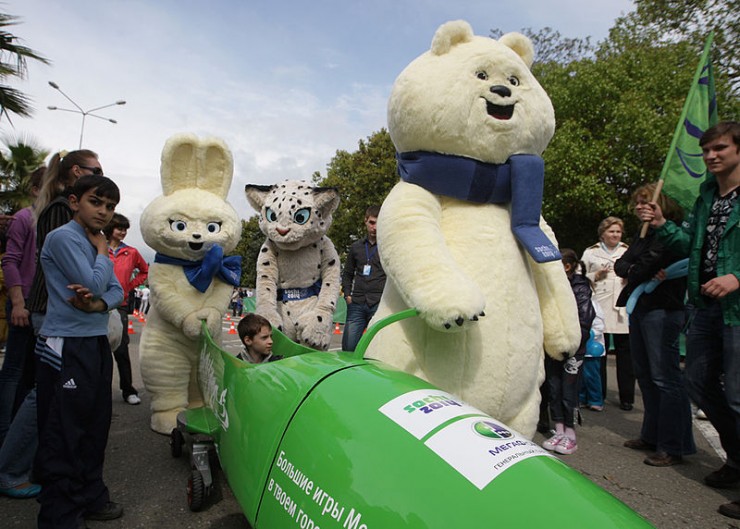
The Russian hosts of the 2014 Sochi Winter Olympics had their doubters; $51 billion U.S. dollars was simply too much to spend on two-week sporting event, they said. Even though it did come only once every four years, Beijing blew the cost of holding an Olympics out of the water when its organizing committee (OC) spent $40 billion on the 2008 Summer Games.
For China, it wasn’t a total loss — its OC claimed a profit of over $146 million, according to The Associated Press. Four years later, London spent nearly $15 billion and profited $8 million.
Sochi’s got y’all beat. Russian organizers announced Thursday that they posted a provisional surplus of $261 million — $119 million higher than the projected figure its organizers announced in April, the AP reported. The Sochi OC said that was a record for any games, higher than the 1984 Los Angeles Olympics, which had a $232 million surplus.
But what’s the truth behind the numbers? When it comes to Russian bucks, it’s almost like we’re talking about play money. (Can fathom what you’d do with $51 billion?)
The surplus regards Sochi OC’s operations budget, which was about $2 billion, and not its construction or infrastructure costs, the AP explains. And while making $261 million on a $2-billion investment isn’t too shabby, it isn’t anywhere close to how much the Russian government doled out to the OC, estimated at $420 million in December. Aside from government subsidies, the OC also made money off merchandise and ticket sales, and sponsorships, including those from Russian state-owned companies.
The reality is, Russia, like many other Olympic hosts, lost money on the deal. But that was to be expected. Regardless, they aren’t quite $51 billion in the hole.
In a statement, Sochi organizing committee chief Dmitry Chernyshenko said that all the profit, which will be final by the end of the year, would be “oriented towards the development of sport in Russia,” along with providing “a significant sum” to Paralympic sports, plus a lump sum of $17.5 million.




One comment
Tim Kelley
June 20, 2014 at 4:32 pm
Scaling down the numbers for an analogy:
Olga’s parents buy her a food wagon so she can sell hot dogs on the streets of Sochi. Her parents pay $51,000 for the food cart. Then they give Olga $2,000 for start-up expenses. At the end of two weeks Olga has $261 in her pocket. Olga’s parents are filled with pride and joy knowing that Olga’s business is wildly successful. Why, in only two weeks … she has made $261 in profits!
Russian Olympic Committee economics.